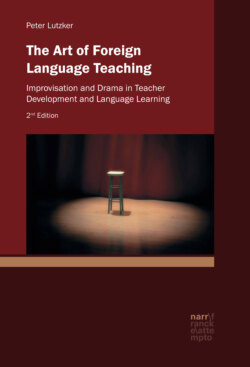Читать книгу The Art of Foreign Language Teaching - Peter Lutzker - Страница 51
На сайте Литреса книга снята с продажи.
4.9 The Initial Hypothesis
ОглавлениеThe importance of expressing a clearly stated hypothesis in the context of a qualitative research study has often been stressed by researchers who have maintained that hypothesis–driven research, which has traditionally been seen as belonging more to the domain of quantitative research, can also have an important place in qualitative research in which verification, and not quantification is the goal.216 Qualitative researchers have argued that a standpoint implying that an hypothesis can only be proved or disproved by setting up rigorous standards of measurement, reflects a narrow view of what verification can mean. Adrian Holliday writes,
Hence, hypotheses are used in qualitative research which investigates a relationship between several entities. This essential nature of hypotheses does not have to be restricted to the controlled world of quantitative research. In qualitative research too there can be relationships which the researcher sets out to investigate in a systematic, though not quantifiable way.217
It lies in the nature of a hypothesis-driven empirical study that it occurs within the framework of deductive research: i.e. an initial hypothesis presents the starting point for the research, as opposed to an “open approach” in which a broad general inquiry presents the basis for the ensuing generation of hypotheses.218 The initial hypothesis upon which this empirical study was based can be formulated as follows:
The clowning and improvisation courses which Vivian Gladwell has conducted in the context of in-service teacher development for Steiner School language teachers have had significant effects on their personal and professional development. Such development may have included an enhanced openness and attentiveness, a heightened sense of empathy, a higher degree of presence and increased improvisational skills. At the same time, these courses have also played an important role in helping teachers to learn to address their own uncertainties, anxieties and mistakes in a more constructive and creative manner. It is postulated that this development may have occurred both in short-term as well as in long-term contexts.
The hypothesis is thus formulated in a manner which matches the accepted, formal standards of scientific research in terms of its being falsifiable, i.e. its defining qualities must be stated in a way that it (or parts of it) can it be clearly disproved and shown to be invalid.
